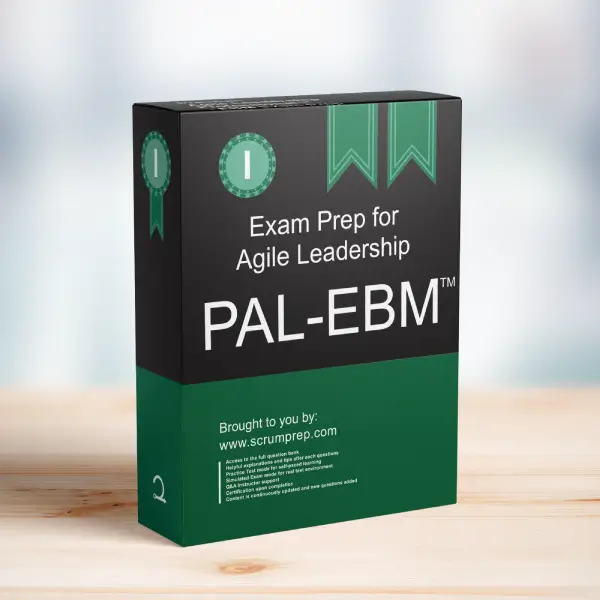Understanding the Status of Multiple Agile Teams
In organizations with multiple agile teams, it’s crucial to have an effective approach to understanding the status and progress of each team without causing disruptions. This article explores the best method for achieving this.
Exam Question
You are a manager at an organization that has multiple agile teams working on different products. Which would be the best approach for understanding the status of each team?
(choose the best answer)
A. Create a shared reporting dashboard that the teams can update at an agreed upon frequency so not to interrupt the teams.
B. Ask the teams to work together to develop and agree on a common way to share their Sprint Goals and what they achieve during each Sprint against those goals.
C. Ask the teams to use burn down charts so you can track what was planned versus what was completed.
D. Ask the teams to work together to standardize Story Point estimations so that velocity of each team can be compared.
Correct Answer
B. Ask the teams to work together to develop and agree on a common way to share their Sprint Goals and what they achieve during each Sprint against those goals.
Explanation
Correct Answer
B. Ask the teams to work together to develop and agree on a common way to share their Sprint Goals and what they achieve during each Sprint against those goals:
This approach ensures that the teams themselves are involved in creating a system that works best for them. By focusing on Sprint Goals and achievements, it keeps the reporting aligned with the actual outcomes and value delivered rather than just tracking metrics. This method fosters collaboration among teams, encourages consistency, and provides meaningful insights into the progress and status of each team.
Incorrect Answers
A. Create a shared reporting dashboard that the teams can update at an agreed upon frequency so not to interrupt the teams:
While this approach can be useful, it may lead to additional overhead for teams if not carefully managed. The focus on a reporting dashboard might not capture the qualitative aspects of the work and progress.
C. Ask the teams to use burn down charts so you can track what was planned versus what was completed:
Burn down charts are useful tools within teams, but relying solely on them for management reporting can miss the bigger picture of goals and outcomes. It also focuses too much on tracking and less on understanding the value delivered.
D. Ask the teams to work together to standardize Story Point estimations so that velocity of each team can be compared:
Standardizing Story Points across teams is generally not recommended because different teams may estimate differently based on their context and experience. Comparing velocity between teams can be misleading and may not provide a true picture of their progress or effectiveness.
Agile Leadership Insights
- Collaborative Reporting: Involving teams in developing their reporting mechanisms ensures that the process is beneficial and not burdensome.
- Focus on Outcomes: Emphasizing Sprint Goals and achievements aligns reporting with the actual value delivered rather than just quantitative metrics.
- Meaningful Metrics: Choose metrics that provide insights into progress and value, avoiding the pitfalls of standardizing Story Points or over-relying on burn down charts.
Relevance to the PAL I Exam
Understanding how to effectively monitor and report on the progress of multiple agile teams is crucial for the PAL I exam. This knowledge demonstrates the ability to lead Agile teams and ensure transparency without causing unnecessary disruptions.
Key Takeaways
- Involve teams in developing their reporting mechanisms to ensure they are meaningful and not burdensome.
- Focus on Sprint Goals and achievements to align reporting with value delivered.
- Avoid standardizing Story Points across teams and over-relying on burn down charts for management reporting.
Conclusion
The best approach for understanding the status of multiple agile teams is to ask the teams to work together to develop and agree on a common way to share their Sprint Goals and what they achieve during each Sprint against those goals. This method ensures meaningful, collaborative, and value-focused reporting. For more information on preparing for the PAL I exam, visit our Professional Agile Leadership PAL I™ Exam Prep.





